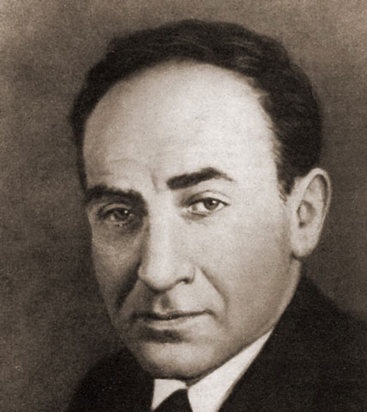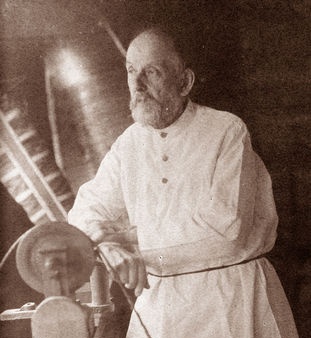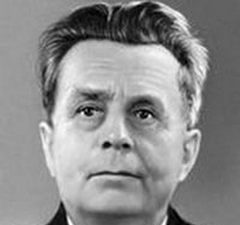|
 How is a person different from an amoeba? Size? Undoubtedly. But this is not the main point. Of course, the human body consists of many billions of cells, and the amoeba is only one. Well, what if you take a herd of billions of amoebas? How is a person different from an amoeba? Size? Undoubtedly. But this is not the main point. Of course, the human body consists of many billions of cells, and the amoeba is only one. Well, what if you take a herd of billions of amoebas?
The advantage of man and higher animals over primitive ones, first of all, is that they do not constitute a herd of scattered cells, but a single highly organized whole. Each cell works for the whole organism, and the whole organism works for each cell. Over millions of years of biological evolution, nature has created a "management apparatus" - the human brain, which, with the help of a ramified and all-pervading nervous system, alone can control the unusually complex economy of the organism.
But is it only living beings that need control? Take large-scale industrial production. This is a very complex organism! Without exception, all enterprises of modern production are connected in it into a single indissoluble whole. Imagine that, for whatever reason, we get less coal than planned. This will immediately cause downtime at the by-product coke plants, followed by metallurgical plants. This means that less excavators and cranes for construction sites, tractors and combines for collective and state farm fields, various machine tools and mechanisms, including cutting machines, will be produced. The coal industry, lacking the necessary equipment, will again fail to fulfill the plan. A vicious circle is formed, from which one can get out only at the cost of serious economic losses.
Practically, however, in all the main branches of industry, our plans are being fulfilled and even overfulfilled. But is it always possible to accurately balance the plans themselves, so that the products of some enterprises do not stale in warehouses, and there is no shortage of products of others? How to choose the most economical routes for transportation? Where is it more profitable to locate new enterprises?
To better answer these questions, it is necessary to compose systems of equations with many unknowns over and over again and solve them. Of the tens and hundreds of thousands of types of products manufactured in our country, there are not even two that do not depend on each other. Imagine what a "brain" the national economy needs to have!
It is clear that the planning authorities are in a position to give answers only in the first approximation. This cannot satisfy us. After all, even very insignificant at first glance planning errors turn into billions of dollars in losses.
The further industry and agriculture develop, the more they produce, the more equations have to be solved, more people are forced to work in planning bodies. Simple calculations show that if the existing system of planning and management is preserved, by 1980 the entire adult population of the country will have to do this.
How, then, is it necessary to improve the efficiency of management without increasing the number of planned workers?
In short, you can answer this: you need to take not by number, but by skill.
Have you ever wondered how many people would be required to produce all modern world products if technology suddenly disappeared and only primitive tools of the Stone Age were at the disposal of workers? Probably an unusually large number. We owe the modern level of production to people who own modern technology. With the help of machines, one person works for ten or a hundred.
And in management? Until recently, man's helpers were only abacus, invented a little later than the stone ax, and the good old man - the adding machine.
Today, economists are helped by high-speed electronic computers.Installed in a large plant, such a machine will be able to constantly monitor the progress of production, the implementation of the plan, and the timeliness of supplies.
Through the incoming and outgoing channels, the electronic brain of the enterprise will constantly keep in touch with the “outside world”. Instead of puffy folders of annual and quarterly reports, on which dozens of economists and accountants work for days, information on the progress of the plant will be continuously sent to the computing center of the economic region. And teams will continuously go in the opposite direction, adjusting the enterprises to the optimal mode of operation. The economic regions will be connected in the same way with the computing center of the republic. So, on the steps of computing centers, information will quickly reach the USSR State Planning Committee, where it will also be processed by “electronic economists”.
On the basis of this information it will be possible (again with the help of computers) to draw up optimal balanced plans for the whole country. It is very important to exclude a person from the process of collecting and transmitting information altogether. This will greatly speed up the passage of information. This, for example, is the opinion of the director of the Institute of Electronic Control Machines I.S.Bruk.
 One electronic machine in a large factory will replace sixty employees and will pay off in less than a year. Add to this the savings through improved sourcing and plant scheduling. As you can see, we are not talking about a simple simplification of the work of planners, but about a radical restructuring of the very technology of economic management. One electronic machine in a large factory will replace sixty employees and will pay off in less than a year. Add to this the savings through improved sourcing and plant scheduling. As you can see, we are not talking about a simple simplification of the work of planners, but about a radical restructuring of the very technology of economic management.
A number of unresolved problems stand in the way of widespread introduction of new technology into management. It is necessary to figure out how and where to use the machines, how, at first, to fit them into the existing control system. There is still a lack of highly qualified economists and mathematicians to work on computers. Great difficulties are associated with the development of a special "machine language" in which it would be easy to formulate problems regardless of the type of machines. Moreover, the "machine language" should be developing and easily assimilated. For machines to come up with truly optimal plans, economics must answer many difficult questions. True, they are now being successfully resolved.
Electronic machines are already helping economists today. There is a computing center in the USSR State Planning Committee. The optimal fuel and energy balance of the USSR was recently compiled. But a fourth of all material resources of the country are invested in energy.
Our socialist production is more difficult to manage than capitalist. This is understandable. It is easier to manage within a separate concern or trust than within a huge country. Shouting about the "Superiority" of the capitalist system, Western politicians often refer to this circumstance. But would anyone think of asserting the superiority of the amoeba over man on the grounds that the amoeba is easier to control?
In the constant struggle between monopolies, loudly called "free competition", huge material resources are wasted. The capitalist system is inherently wasteful. Billions (or even thousands) of amoebas that make up capitalist production cannot be brought into a single whole by any superperfect management system.
This is recognized by the largest scientists of the West. During his stay in Moscow, the "father" of cybernetics, Nobert Wiener, spoke about the use of electronic machines in production management. Someone asked Wiener how he felt about the prospects of using computer technology to manage the economy of an entire country. The American scientist said that under capitalist production this is impossible, but in socialist countries it holds great promise. However, he immediately added that he did not want to talk about politics. But in fact, there was no question of politics.Just an honest and principled scientist was forced to admit that the science he founded is passing judgment on the order of which he himself is an adherent.
Gavrilova N.V.
|
 How is a person different from an amoeba? Size? Undoubtedly. But this is not the main point. Of course, the human body consists of many billions of cells, and the amoeba is only one. Well, what if you take a herd of billions of amoebas?
How is a person different from an amoeba? Size? Undoubtedly. But this is not the main point. Of course, the human body consists of many billions of cells, and the amoeba is only one. Well, what if you take a herd of billions of amoebas?









